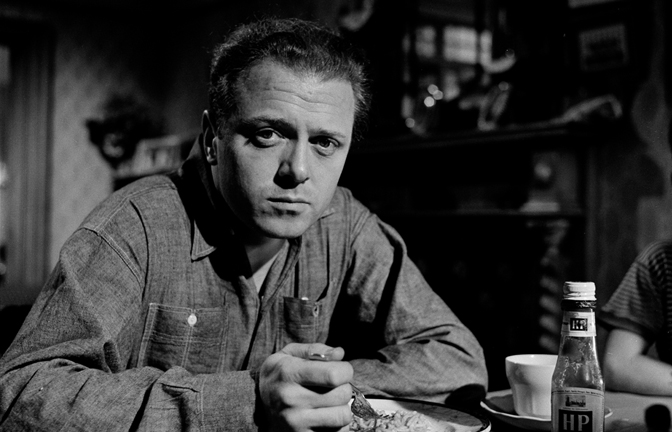Early 1960s industrial strife forms the backdrop for this British drama, which was the first film a production company formed by Richard Attenborough and Bryan Forbes.
Set in a fictionalised town it portrays the dilemma of a factory worker (Attenborough) belonging to a unionised workforce who gradually comes to doubt his union bosses and later comes into conflict with them when some members start harassing his wife (Pier Angeli) and family.
The film has an interesting approach to the issue of UK labour relations, pitting a protagonist in between his family and his fellow workers engaging in a wildcat strike.
As the narrative progresses some would argue that the story is somewhat lopsided against the strikers, but for a British film of this period to tackle such issues was bold, even if at times it resembles a poor mans On the Waterfront (1954) – still the gold-plated classic of this sub-genre.
From a contemporary view – where union power has become greatly reduced – this film may look a little bizarre, even offensive to some – but as a certain story, set in a specific time, it is perhaps wiser to acknowledge the historical context.
Indeed, as fully paid members of film industry unions the makers of this film would have known all to well the value of not being at the mercy of studio bosses.
Themes aside, the technical qualities of this film are what you might expect of the era: consistent shooting style, and slightly overcooked dialogue and acting.
The director Guy Green was a fine cinematographer for two classic David Lean films – Great Expectations (1946) and Oliver Twist (1948) – but he was less skilled in the director’s chair going on to make films like the poorly received The Magus (1968) and The Devil’s Advocate (1977).
Despite being less than a classic, it remains an interesting curiosity for those interested in a lesser known example of the British new wave of the 1960s.
> Buy The Angry Silence at Amazon UK
> Find out more about British New Wave Cinema at Wikipedia
